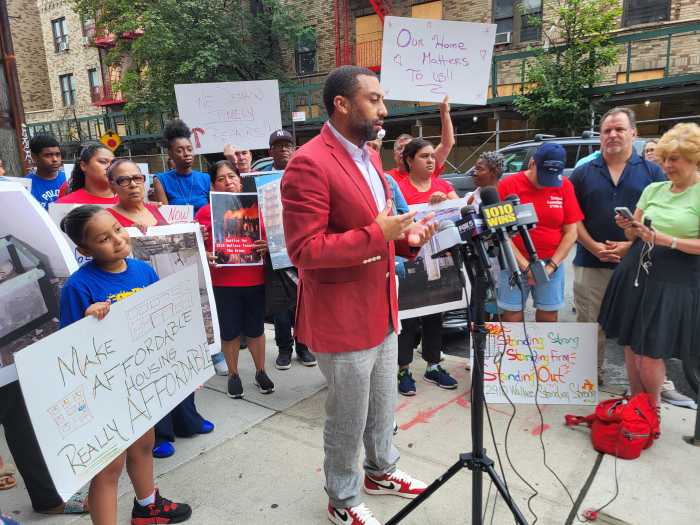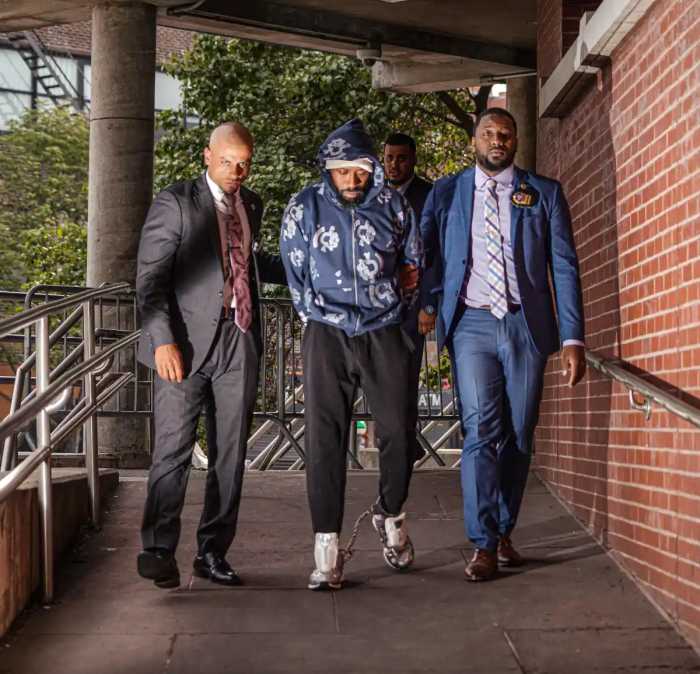Women in New York may no longer have to suffer in silence after being harassed or assaulted at the workplace as new state legislation looks to ban non-disclosure agreements, commonly referred to as NDAs.
The bill, Stop Silencing Survivors Act, was announced on April 29 by state Sen. Alessandra Biaggi, Brooklyn state Sen. Andrew Gounardes, and Queens Assemblymember Jessica González-Rojas. The legislation would align New York with Washington, New Jersey and California, which have all recently passed laws to ban NDAs for workplace discrimination cases.
This would improve upon a law passed in 2018 where New York banned NDAs in sexual harassment claims except where it’s the complainant’s preference. The proposed legislation would ban NDAs outright — but allow complainants to request language preventing an employer from disclosing their identity or the circumstances surrounding their complaint.
An NDA acknowledges a confidential relationship between two or more parties and protects the information they share from disclosure to outsiders.
In the proposed measure, agreements may still include language barring an employer from revealing the identity of an employee or the circumstances surrounding their complaint, providing important protections to victims who want privacy. Additionally, the legislation bars employers from including language in a contract or application for employment as a condition of employment that bars employees from disclosing information related to any future alleged violations of the human rights law, labor law or their experience with the employer.
“NDAs have been used again and again by employers to silence survivors of workplace harassment and discrimination and protect abusers,” said Biaggi, whose legislative district overlaps the Bronx and Westchester County. “By passing the Stop Silencing Survivors Act we can put the power back in the hands of employees — giving them the agency to share their experiences when and if they so choose.”
Under current law, a settlement may only include an NDA if it is the victim’s preference. But in practice, many victims of sexual harassment and discrimination are pressured into signing an NDA, often to receive compensation for the harm they experienced.
Biaggi, a Pelham Progressive running in a congressional primary this year, told the Bronx Times a law like this is long overdue. The co-sponsors of the bill worked with the Sexual Harassment Working Group — launched by seven former state legislatives employees who experienced, reported or witnessed sexual harassment — and Lift Our Voices — a nonprofit dedicated to eradicating NDAs for toxic work issues and mandatory arbitration clauses — to craft the legislation.
According to the senator, too often employers put NDAs in contracts and people sign them because they need the job or don’t even realize it is there. The hope is this proposed bill would end toxic workplaces where people like Matt Lauer, Harvey Weinstein and Roger Ailes all preyed on women and made them sign NDAs.
#DYK: 98% of women believe reporting non-inclusive behaviors will negatively impact their careers, per @Deloitte. It’s time for systematic change in the workplace. @LiftOurVoicesUS believes that all survivors should have the power to seek justice for the toxicity they experience.
— Lift Our Voices (@LiftOurVoicesUS) May 5, 2022
While the ME Too movement began in 2017 where women nationwide started speaking out about abuse and harassment at the workplace, New York laws still have not caught up with reality, Biaggi said.
Two women who are supportive of the bill and experienced harassment in the workplace are former Fox News contributor Julie Roginsky and Leah Hebert, a former staffer for the late scandal plagued Brooklyn Assemblymember Vito Lopez.
Roginsky alleged that she was offered a permanent position after she declined the sexual advances of Fox News’s former CEO Roger Ailes. In 2017, she settled a lawsuit against Fox News and Ailes. In 2019, Roginsky and former Fox News Host Gretchen Carlson, who also sued the station for harassment, launched Lift Our Voices.
Roginsky, a Democratic strategist, said the state legislation could impact many women that have had to stay silent and hopefully make workplaces safer. She said NDAs need to be addressed nationwide, not just in New York.
According to the Harvard Business Review, a study shows that more than one third of the workforce in the country is bound by an NDA.
“I think it’s a fairly new issue that people are only now starting to focus on,” Roginsky said about NDAs. “You never start a job thinking you will be exposed to toxicity.”
Roginsky said there is no way to know the exact number of women that have signed NDAs, but thinks the majority often don’t understand what they have agreed to. NDAs also allow predatory behavior to continue at companies because people are silenced from speaking about it, she said.
“If you can’t tell anybody this is happening to you because you are bound by an NDA that means this person is going to harass other people,” she said.
Hebert, who co-founded the Sexual Harassment Working Group, hopes the proposed legislation will change the workplace culture. According to Hebert, if women leave and don’t sign an NDA, they are often blacklisted, and places won’t hire them.
“I think it is remarkable what has happened in three states, and this is the beginning of more states starting to recognize that this is a public health crisis,” Hebert said.
Reach Jason Cohen at jcohen@schnepsmedia.com or (718) 260-4598. For more coverage, follow us on Twitter, Facebook and Instagram @bronxtimes





















